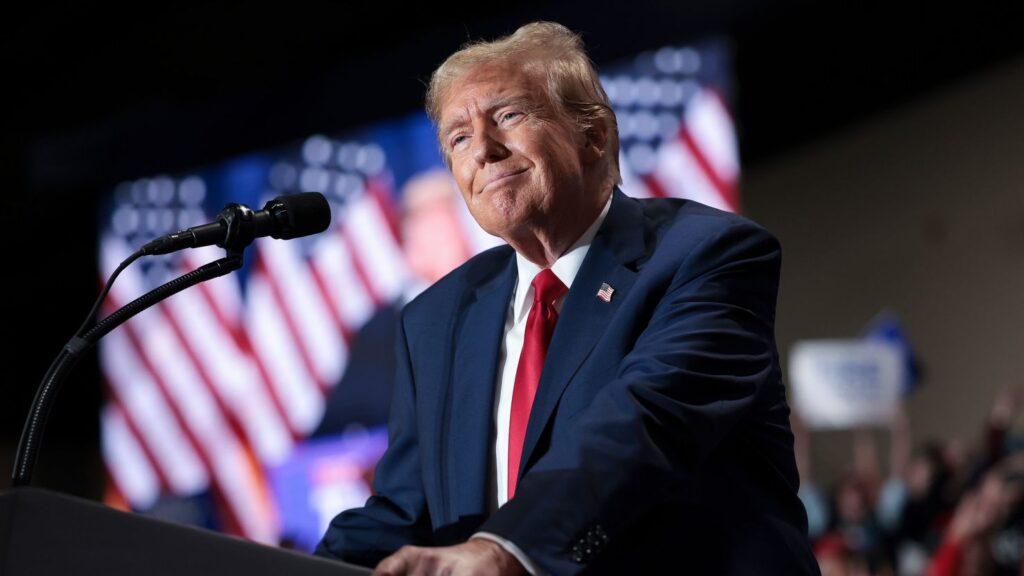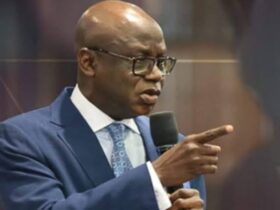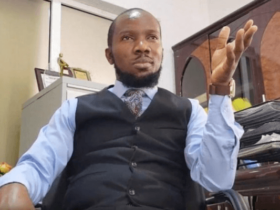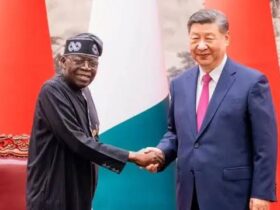Nigeria loses $18 billion every year to corruption. That’s not just a number—it’s the dreams of millions of children who will never attend school, the hopes of patients dying in underfunded hospitals, and the tears of farmers unable to access roads to transport their goods.
For decades, this rot has been left unchecked, as the powerful loot with impunity, shielded by a compromised judiciary and a system designed to protect the elite. Nigerians are angry, frustrated, and exhausted. It has become almost impossible to eradicate corruption in Nigeria without the death penalty. Nigerians have protested, but the vices persist. Many anti corruption articles published recorded no improvement in all governmental sectors. The question now is: should corrupt leaders pay with their lives?
Lessons from China: A Bold Approach or a Step Too Far?
Last week, Chinese government executed Li Jianping, a former official in the Inner Mongolia Autonomous Region and who was found guilty of embezzling over three billion yuan (approximately $421 million). The execution, ordered by China’s Supreme People’s Court, was symbolic—a clear warning to others who might dare to loot public resources.

This event raises a provocative question: Could Nigeria adopt similar measures to tackle its endemic corruption? For many Nigerians, the idea seems appealing. In a recent poll conducted by Parallel Facts on X, 90% of over 800 voters supported capital punishment for corrupt officials as it is obtainable in China. Here’s what some had to say:
A user on X, Adole A, remarked, “Capital punishment is the only way to stop the looting from Public office.”
Another, Jeffferson, stated, “Not just them but their entire lineage/generation to serve as the ultimate deterrence.”
“Oh yes! Straight execution. There should be consequences for corruption,” Ifeadigo noted.
Edward, stated, “First we have to eliminate all the politicians from 1999 till now that are still alive and having issue of corruption or mismanagement in government. Then we can now go on with the capital punishment fronted by a trusted Nigerian.”
Another Nigerian, Akinfosile Sola added, “This will prevent many thieves from going into politics.”
This response reveals not just frustration but a deep hunger for justice. Ordinary Nigerians are tired of a system where petty thieves are jailed for years, while officials who steal billions negotiate plea bargains and live in luxury.
Can the Death Penalty Work in Nigeria?
While capital punishment might seem like an attractive solution, implementing it in Nigeria’s current political and judicial climate poses significant challenges. Nigeria’s legal system, plagued by corruption and political interference, struggles to hold powerful individuals accountable. High-profile cases often end in plea bargains, prolonged trials, or dismissed charges. So many questions stills stands unanswered; Can our judicial system riddled with corruption be trusted to deliver fair trials? Would the death penalty become a weapon for politicians to silence rivals rather than punishing genuine offenders?

Recently, the immediate former Kogi State Governor, Yahaya Bello, who was arrested by the Operatives of the Economic and Financial Crimes Commission (EFCC) over embezzlement and misappropriation of fund, and brought to the court for prosecution was seen waving to the crowd outside the court like a worthy celebrity. Meanwhile, a human rights lawyer, Dele Farotimi, who took eleven years to write a book on a criminality that characterised the Nigerian judicial system, was arrested, handcuffed, and almost paraded like a criminal. Also, if not for the intervention of the Governor of Osun State, Ademola Adeleke, a 17 year old boy who has already spent 10 years in prison, would have died by hanging. Meanwhile, political office holders are on a daily stealing taxpayers’ money unnoticed and subsequently unprobed.
However, the real battle is not just in punishing corrupt officials but in creating a system where corruption is no longer the easiest route to wealth and power.
Is the World Embracing China’s Stance on Death Penalty?
In a recent interview, the President-elect of the United States of America, Donald Trump, when asked about his plan for drug traffickers, he said he is adopting the Chinese President Xi’s approach which is death penalty.

According to Trump, as reported by Parallel Fact, ““The only way you’re gonna stop this is the death penalty for drug dealers. I don’t know if this country is ready for it, but if you think about it, each drug dealer on average kills 500 people on average. I know so many families who have lost a son or a daughter or parents. I had a deal worked out with China with President Xi directly that he was going to give you know China has the death penalty. I said to him.
“Do you have a drug problem when I first met him? He looked at me like, “What a stupid question exactly.” He said no, no, no, no, no drug problem. I said well, what do you do? Death penalty immediate death penalty and I said, hmm.
“That sounds he said without it I talked to him a lot about he said without it, you know, China was a Drug-loaded country years ago other countries much smaller would take it over Mm-hmm because they were all wasted out with the opium and the poppy and they had a big problem, but they Execute drug dealers.”
A Call to Action
The anger of Nigerians is justified. For too long, corruption has stolen not just money, but hope, trust, and opportunity. The demand for the death penalty is a reflection of this collective pain.
READ ALSO:Nigeria’s Justice System Weak; Full of Corruption, Bribery – IGP; ICPC Chairman
But we must ask ourselves: will this drastic measure fix the system or simply offer a temporary sense of justice? The answer lies in our willingness to address the root causes of corruption, not just its symptoms.
Moreover, it is not rocket science to end corruption in its entirety, and if not possible, to bring it to the bearest minimum as operational in the Western world. Nigeria has the resources to make the country great again but some politicians without foresight are committed to running the country for their gains.
No matter how deep corruption has eaten into our fabric as a nation, Nigerians must demand accountability at all levels of governance. Whether through the death penalty or other reforms, one thing is clear: Nigerians demand action—and they demand it now.
Follow the Parallel Facts channel on WhatsApp: https://whatsapp.com/channel/0029VaCQSAoHgZWiDjR3Kn2E









Leave a Reply